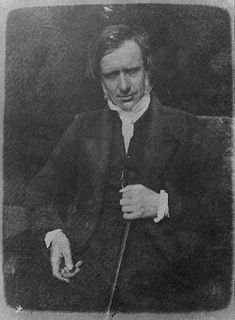A Quote by H. P. Blavatsky
It is an occult law moreover, that no man can rise superior to his individual failings without lifting, be it ever so little, the whole body of which he is an integral part. In the same way no one can sin, nor suffer the effects of sin, alone. In reality, there is no such thing as 'separateness' and the nearest approach to that selfish state which the laws of life permit is in the intent or motive.
Related Quotes
The time has been in Israel under the law of God, the celestial law, or that which pertains to the celestial law, for it is one of the laws of that kingdom where our Father dwells, that if a man was found guilty of adultery, he must have his blood shed, and that is near at hand. But now I say, in the name of the Lord, that if this people will sin no more, but faithfully live their religion, their sins will be forgiven them without taking life
Sin! Sin! Thou art a hateful and horrible thing, that abominable thing which God hates. And what wonder? Thou hast insulted His holy majesty; thou hast bereaved Him of beloved children; thou hast crucified the Son of His infinite love; thou hast vexed His gracious Spirit; thou hast defied His power; thou hast despised His grace; and in the body and blood of Jesus, as if that were a common thing, thou hast trodden under foot His matchless mercy. Surely, brethren, the wonder of wonders is, that sin is not that abominable thing which we also hate.
We've fallen for the devil's lie. His most basic strategy, the same one he employed with Adam and Eve, is to make us believe that sin brings fulfillment. However, in reality, sin robs us of fulfillment. Sin doesn't make life interesting; it makes life empty. Sin doesn't create adventure; it blunts it. Sin doesn't expand life; it shrinks it. Sin's emptiness inevitably leads to boredom. When there's fulfillment, when there's beauty, when we see God as he truly is-an endless reservoir of fascination-boredom becomes impossible.
Little sins carry with them but little temptations to sin, and then a man shews most viciousness and unkindness, when he sins on a little temptation. It is devilish to sin without a temptation; it is little less than devilish to sin on a little occasion. The less the temptation is to sin, the greater is that sin.
Evil is neither suffering nor sin; it is both at the same time, it is something common to them both. For they are linked together; sin makes us suffer and suffering makes us evil, and this indissoluble complex of suffering and sin is the evil in which we are submerged against our will, and to our horror.
And since the mind is of a man one part,
Which in one fixed place remains, like ears,
And eyes, and every sense which pilots life;
And just as hand, or eye, or nose, apart,
Severed from us, can neither feel nor be,
But in the least of time is left to rot,
Thus mind alone can never be, without
The body and the man himself, which seems,
As 'twere the vessel of the same- or aught
Whate'er thou'lt feign as yet more closely joined:
Since body cleaves to mind by surest bonds.
People who think of themselves as tough-minded and realistic, among them influential political leaders and businessmen as well as go-getters and hustlers of smaller caliber, tend to take it for granted that human nature is selfish and that life is a struggle in which only the fittest may survive. According to this philosophy, the basic law by which man must live, in spite of his surface veneer of civilization, is the law of the jungle. The "fittest" are those who can bring to the struggle superior force, superior cunning, and superior ruthlessness.
MORAL LAW, Evidence of.- Man has been subjected by his Creator to the moral law, of which his feelings, or conscience as it is sometimes called, are the evidence with which his Creator has furnished him. ... The moral duties which exist between individual and individual in a state of nature, accompany them into a state of society ... their Maker not having released them from those duties on their forming themselves into a nation.



































